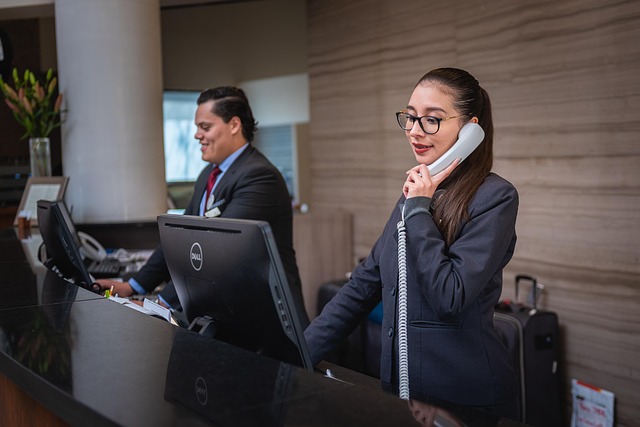Exploring Hotel Jobs in Dubai: Careers and Industry Overview
Dubai's thriving hospitality sector offers diverse career opportunities in its world-renowned hotel industry. From luxury resorts to boutique accommodations, professionals can find roles spanning culinary arts, guest services, management, and specialized positions that combine competitive compensation with unique cultural experiences in this global tourism hub.

Dubai’s hotel industry represents one of the most dynamic and internationally diverse employment sectors in the Middle East. The city’s strategic position as a global tourism and business destination has created a thriving hospitality landscape that continues to expand year after year. For professionals seeking international experience, Dubai offers unique advantages including tax-free income, multicultural work environments, and exposure to world-class hospitality standards.
Overview of the Hotel Industry in Dubai
Dubai’s hospitality sector has experienced remarkable growth over the past two decades, transforming the emirate into a premier destination for both leisure and business travelers. The industry encompasses over 700 hotels and hotel apartments, ranging from internationally recognized luxury brands to independent boutique properties. Major hotel groups maintain significant presence in the city, operating properties across various segments including five-star resorts, business hotels, and serviced apartments. The sector employs tens of thousands of professionals from over 200 nationalities, creating one of the most diverse workforces globally. Tourism initiatives and major events continue to drive demand for skilled hospitality professionals, with the industry playing a crucial role in the emirate’s economic diversification strategy.
Career Pathways in Dubai’s Hospitality Sector
The hotel industry in Dubai offers numerous career trajectories across multiple departments and specializations. Front office positions include roles such as reception, guest relations, concierge services, and reservations management. Food and beverage departments encompass restaurant service, bar operations, culinary positions, and banquet coordination. Housekeeping and maintenance divisions provide opportunities in room attendant roles, supervisory positions, and facility management. Sales and marketing teams focus on revenue generation, event coordination, and digital marketing initiatives. Human resources, finance, and administrative functions support operational effectiveness across properties. Many hotels maintain structured career development programs that allow employees to progress from entry-level positions to management roles. International transfers within hotel groups provide additional advancement opportunities for ambitious professionals.
Required Qualifications and Skills for Hotel Jobs
Qualifications for hotel positions in Dubai vary significantly depending on the role and level of responsibility. Entry-level positions typically require a high school diploma or equivalent, along with relevant experience or vocational training in hospitality. Management and specialized roles often require bachelor’s degrees in hospitality management, business administration, or related fields. Professional certifications in areas such as food safety, revenue management, or hotel operations can enhance employment prospects. Language skills are highly valued, with English proficiency considered essential and additional languages providing competitive advantages. Technical competencies in property management systems, point-of-sale software, and reservation platforms are increasingly important. Soft skills including customer service orientation, cultural sensitivity, communication abilities, and problem-solving capabilities are fundamental to success in hospitality roles. Previous international experience and familiarity with luxury service standards can significantly strengthen applications for positions in premium properties.
Working Conditions and Cultural Considerations in Dubai
Working in Dubai’s hotel industry requires understanding and adapting to the local cultural context while maintaining international hospitality standards. The work environment is typically fast-paced and service-oriented, with emphasis on guest satisfaction and attention to detail. Working hours vary by department and position, with many roles requiring shift work including evenings, weekends, and holidays. The hospitality sector operates year-round without seasonal closures, providing consistent employment opportunities. Cultural awareness is essential, as employees interact with guests and colleagues from diverse backgrounds. While Dubai is relatively cosmopolitan compared to other Middle Eastern cities, respect for local customs and Islamic traditions remains important. Dress codes in hotels typically follow professional standards, with some variation between front-of-house and back-of-house positions. The multicultural workforce creates opportunities for cross-cultural learning and professional networking. Many hotels provide staff accommodation or housing allowances, transportation support, and comprehensive benefits packages that may include health insurance and annual leave.
Legal Requirements for Working in Dubai’s Hotel Industry
Employment in Dubai’s hotel sector requires compliance with United Arab Emirates immigration and labor regulations. Foreign nationals must obtain employment visas sponsored by their employing hotel or hospitality company. The visa process typically involves medical examinations, Emirates ID registration, and submission of educational credentials and professional certificates. Employment contracts must comply with UAE labor law, specifying terms including salary, working hours, leave entitlements, and notice periods. Hotels are responsible for processing work permits and residency visas for their international employees. Background checks and credential verification are standard procedures during the hiring process. Professional licenses may be required for certain specialized positions such as chefs, fitness instructors, or spa therapists. Understanding contractual terms including probation periods, end-of-service benefits, and repatriation provisions is important before accepting employment. Workers’ rights are protected under UAE labor law, which establishes standards for working conditions, dispute resolution, and employment termination procedures.
This article is for informational purposes only and should not be considered as specific career or legal advice. Prospective employees should conduct independent research and consult with qualified professionals regarding employment decisions and visa requirements.
Dubai’s hotel industry continues to offer compelling opportunities for hospitality professionals seeking international career experiences. The combination of professional development prospects, competitive compensation packages, and exposure to global hospitality standards makes the emirate an attractive destination for those building careers in the sector. Success in this competitive market requires appropriate qualifications, cultural adaptability, and commitment to service excellence. As Dubai’s tourism sector continues to evolve, the demand for skilled and passionate hospitality professionals remains strong, creating ongoing opportunities for those prepared to meet the industry’s high standards.




